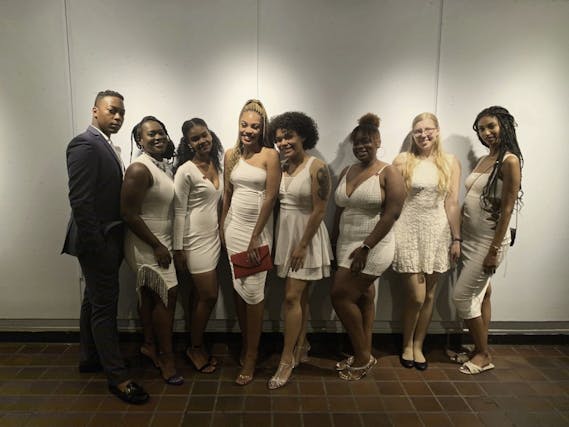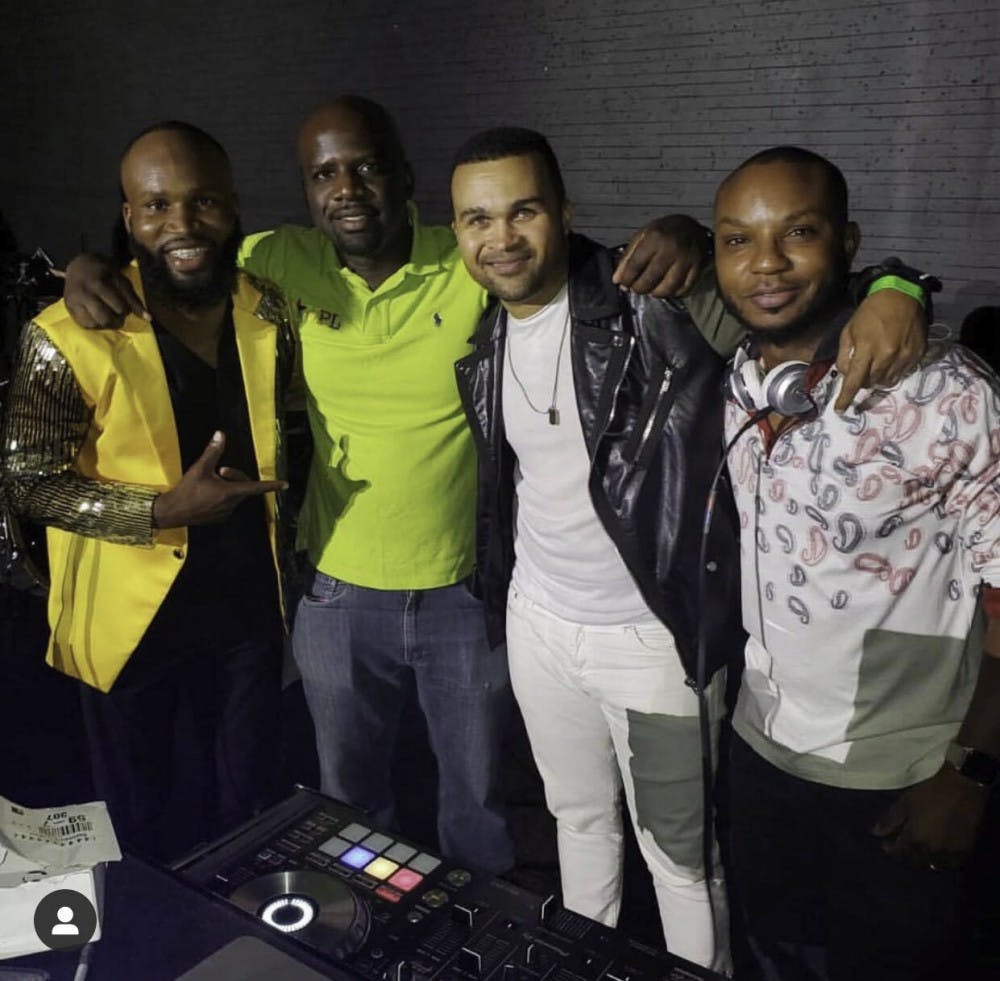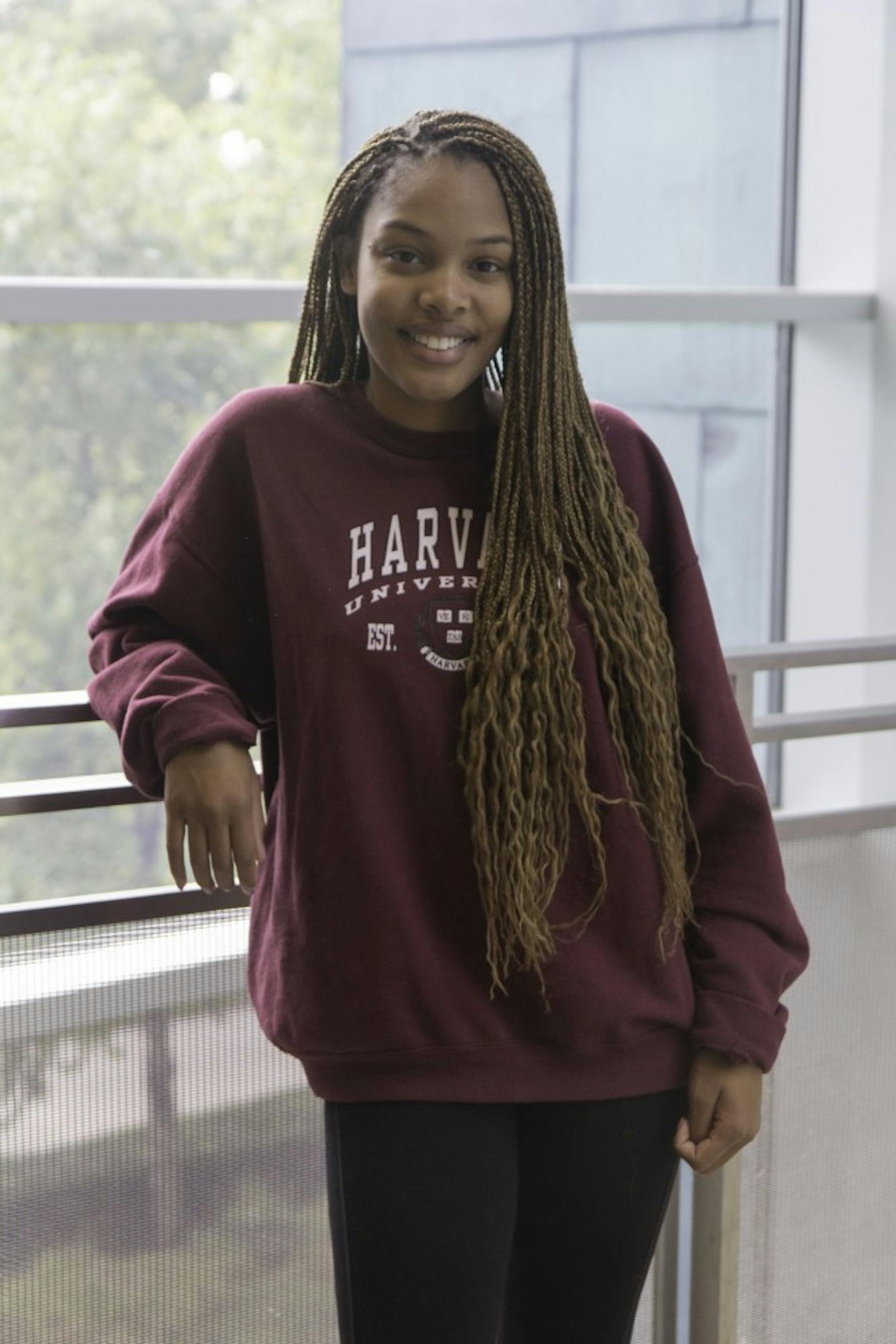Concert, contracts and challenges: A conversation with Janikah Brice ’20
Being a leader, specifically the president of a club is hard, and bringing off-campus guests to perform at an on-campus event is not an easy project to take on. Last week, I sat down with Janikah Brice ’20, the president of YourStory International at Brandeis. We talked about YourStory International and its expedition program in Haiti, the process and challenges faced while organizing the Haitian Kompa Concert and her suggestions for the University in the future.

FR0M IDEAS TO REALITY: After four months of planning, the Brandeis chapter of YourStory International successfully hosted their first ever concert on Sept. 28.
YourStory International at Brandeis is a chapter of an organization that provides support for Haitian communities through public health services and community development. During spring and summer breaks, eight to nine day expeditions are led in Haiti to provide health education and free clinics for the underprivileged communities. It is also an opportunity to meet students from other school’s chapters and network with health professionals. You don’t have to have a Biology or Health, Science, Society, and Policy background to be part of the trip. As Janikah said, “I think the trip is more interesting when you have a range of people who don’t have the same interests. And it is usually what it is.”
On Sept. 28, YourStory International hosted its first-ever Haitian Kompa Concert. Four local and international performers, KAÏ, Rebecca Zama, Valerie Larena and DJ Super Duke, performed for the Brandeis community. Host_Valcin hosted of the show.

LOCAL AND INTERNATIONAL: From Boston to Haiti, DJ to host, the ensemble included people with diverse backgrounds and talents.
Knowing that this would be a large project, and that that it would be the first time they hosted an event like this, she and the rest of the organization members started planning as soon as their budget was approved last semester. They booked a space for the concert and reached out to the artists to perform. Then, they drafted their contracts with them.
Even though the event was over a week ago, Janikah is still far from done with it. “I’ve been dealing with these contracts for four, five months now. And it is still an ongoing process,” Janikah said during her interview with the Justice. “I will say that working to coordinate with the people off-campus was the easiest part. Working to coordinate with Brandeis is the hardest part.” According to Janikah, while the funding application process seemed to be clear on the website, she had to frequently check in with various departments in order to have an idea of the process of the application. The documents were also lost by the offices processing them more than once, and she had to track down where they were lost and resubmit them to the department.
When asked what suggestions she had for the University to make planning an event of this caliber together easier, Janikah offered the following pieces of advice. First of all, she suggested that having an online portal for the application would help student organizers track down applications. “Every other day, I was calling the departments [tracking down the application]. And that takes a lot of time out of me being a student.” Secondly, the Student Union Management System, is an extremely outdated system that “is more confusing than helpful.” It is hard to understand, even for someone who has spent quite some time on it, and “you can have thousands of dollars in your account, but if you don’t know how to access it, then what’s the point?” When organizing an event with off-campus guests, there are a lot of expenses that are flexible and likely to be different from the estimation when submitting the budget. Every change on the budget can take over a week to fix, “and when you have a concert and an event coming and the performers are expecting to get paid, that holds up your process.” The University will be switching from SUMS to a new system, Slate, in the near future.
To Janikah, a complicated and inefficient system hurts the passion of student organizers with grand ideas. “We wanted this event to be annual but I don’t even see how this event could happen next year, because how discouraging it was to have to put it on with all the offices who are constantly not supporting but making it harder.”



Please note All comments are eligible for publication in The Justice.